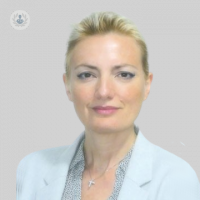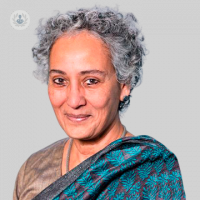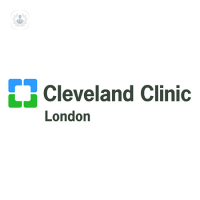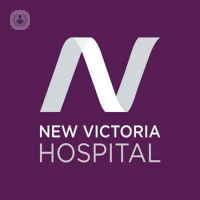What are blood disorders?
Blood disorders, or haematological conditions, are conditions that affect the components of blood, that is, red blood cells, white blood cells, platelets and blood plasma. These conditions can be classified according to which component they affect and based on what causes them.
- A blood disorder affecting the red blood cells may cause an increase or decrease in their volume or amount;
- Disorders of the white blood cells may lead to an abnormality in their production and amount;
- Conditions affecting the platelets may cause an alteration in their shape and amount, prompting coagulation disorders;
- A disorder affecting the blood plasma may lead to coagulation disorders and an increased risk of haemorrhage.

Blood disorders can be caused by:
- Genetic factors
- Inherited factors
- Nutritional factors
- Autoimmune conditions
- Infections
- Concurrent conditions or treatments
What are the symptoms of blood disorders?
The symptoms largely vary according to the specific type of condition. A few examples include paleness and fatigue (red blood cells disorders), fever, itchy and enlarged lymph nodes and spleen (white blood cells disorders), formation of thromboses or clots or presence of spots on your skin (platelet conditions).
How are blood disorders diagnosed?
The most common test is a blood test with a complete blood count (CBC) performed, which may be followed by other tests and exams in case the results of the blood test show any abnormalities. These include reticulocyte count, clotting assessment, protein test, bone marrow examination and other, more specific, haemocytes tests.
How can blood disorders be treated?
Much like the symptoms, treatment options largely vary according to the specific type of condition as well. For instance, taking vitamin B12 and iron supplements in case of anaemia; medications, blood transfusions and bone marrow transplants in case of thalassemia (an inherited blood disorder); taking biological medicinal products and having chemotherapy and immunotherapy in case of myeloma.
Which doctor should I talk to?
If you have a haematological condition, you should see a specialised haematologist.
05-18-2017 09-19-2023Blood disorders
Dr Lalita Banerjee - Haematology
Created on: 05-18-2017
Updated on: 09-19-2023
Edited by: Carlota Pano
What are blood disorders?
Blood disorders, or haematological conditions, are conditions that affect the components of blood, that is, red blood cells, white blood cells, platelets and blood plasma. These conditions can be classified according to which component they affect and based on what causes them.
- A blood disorder affecting the red blood cells may cause an increase or decrease in their volume or amount;
- Disorders of the white blood cells may lead to an abnormality in their production and amount;
- Conditions affecting the platelets may cause an alteration in their shape and amount, prompting coagulation disorders;
- A disorder affecting the blood plasma may lead to coagulation disorders and an increased risk of haemorrhage.

Blood disorders can be caused by:
- Genetic factors
- Inherited factors
- Nutritional factors
- Autoimmune conditions
- Infections
- Concurrent conditions or treatments
What are the symptoms of blood disorders?
The symptoms largely vary according to the specific type of condition. A few examples include paleness and fatigue (red blood cells disorders), fever, itchy and enlarged lymph nodes and spleen (white blood cells disorders), formation of thromboses or clots or presence of spots on your skin (platelet conditions).
How are blood disorders diagnosed?
The most common test is a blood test with a complete blood count (CBC) performed, which may be followed by other tests and exams in case the results of the blood test show any abnormalities. These include reticulocyte count, clotting assessment, protein test, bone marrow examination and other, more specific, haemocytes tests.
How can blood disorders be treated?
Much like the symptoms, treatment options largely vary according to the specific type of condition as well. For instance, taking vitamin B12 and iron supplements in case of anaemia; medications, blood transfusions and bone marrow transplants in case of thalassemia (an inherited blood disorder); taking biological medicinal products and having chemotherapy and immunotherapy in case of myeloma.
Which doctor should I talk to?
If you have a haematological condition, you should see a specialised haematologist.
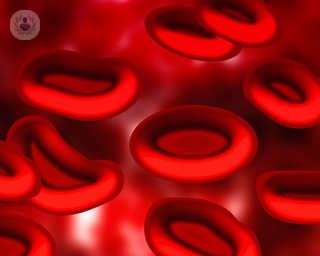

Revolutionising blood disorder treatments: the latest advances in haematology
By Dr Sangeeta Atwal
2025-01-24
This article explores the latest advancements in haematology and their impact on treating blood disorders. From targeted therapies to gene therapy, these innovations are transforming patient care and improving outcomes. See more


What might blood in the urine indicate?
By Mr Rajiv Pillai
2025-01-19
Have you recently noticed blood in your urine? If so, read our latest article to find out what could be the cause of it, and how the cause is typically detected, as revered consultant urologist, Mr Rajiv Pillai, reveals all. See more
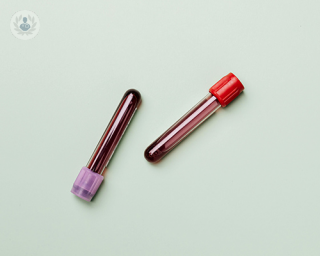

Do I need to get my blood checked?
By Dr Varun Mehra
2025-01-15
In his latest online article, renowned consultant haemato-oncologist Dr Varun Mehra explains when you should consider getting your blood checked by a specialist. He delves into the different possible conditions that can be detected in the blood, the signs of blood cancer and the different treatments available. See more
Experts in Blood disorders
-
Dr Lalita Banerjee
HaematologyExpert in:
- Anaemia
- Thrombocytopenia
- Blood disorders
- Lymphoma
- Myelodysplastic syndrome
- Leukaemia
-
Dr Kathrin Aprile von Hohenstaufen Puoti
HaematologyExpert in:
- Blood disorders
- Anaemia
- Leukaemia
- Hodgkin's lymphoma
- Lymphoma
- Bleeding disorders
-
Dr Zaid Abboudi
HaematologyExpert in:
- Leukaemia
- Lymphoma
- Multiple myeloma
- Anaemia
- Blood disorders
- Blood clots
-
Dr Shereef Elmoamly
HaematologyExpert in:
- Anaemia
- Bleeding disorders
- Blood clots
- Bone marrow cancers
- Bone marrow transplant
- Blood disorders
-
Dr Mallika Sekhar
HaematologyExpert in:
- Immunotherapy
- Myeloproliferative disorders
- Leukaemia
- Blood disorders
- Chronic fatigue
- Sickle cell anaemia
- See all

Cleveland Clinic Portland Place Outpatient Centre
Cleveland Clinic Portland Place Outpatient Centre
24 Portland Place, W1B 1LU
No existe teléfono en el centro.
By using the telephone number provided by TOP DOCTORS, you automatically agree to let us use your phone number for statistical and commercial purposes. For further information, read our Privacy Policy
Top Doctors

New Victoria Hospital
New Victoria Hospital
184 Coombe Lane West, Kingston upon Thames, KT2 7EG
No existe teléfono en el centro.
By using the telephone number provided by TOP DOCTORS, you automatically agree to let us use your phone number for statistical and commercial purposes. For further information, read our Privacy Policy
Top Doctors

Cleveland Clinic London Hospital
Cleveland Clinic London Hospital
33 Grosvenor Place, SW1X 7HY
No existe teléfono en el centro.
By using the telephone number provided by TOP DOCTORS, you automatically agree to let us use your phone number for statistical and commercial purposes. For further information, read our Privacy Policy
Top Doctors
-
Cleveland Clinic Portland Place Outpatient Centre
24 Portland Place, W1B 1LU, Central LondonExpert in:
- Diagnosis of Cancer
- Diagnostics
- Women’s health
- Sports Medicine
- General practice
- Health check up
-
New Victoria Hospital
184 Coombe Lane West, Kingston upon Thames, KT2 7EG, South LondonExpert in:
- Cardiology
- General Surgery
- Orthopaedic surgery
- Breast augmentation
- Pain management
- Spine
-
Cleveland Clinic London Hospital
33 Grosvenor Place, SW1X 7HY, Central LondonExpert in:
- Cardiology
- Colorectal surgery
- Minimal access surgery (keyhole surgery)
- Gallbladder surgery
- Diagnostic Imaging
- Ultrasound
- See all
- Most viewed diseases, medical tests, and treatments
- Respiratory infection
- Immunotherapy
- Chronic headache
- Child nutrition
- CAR-T cells
- Migraine
- Hodgkin's lymphoma
- Paediatric rheumatology
- Autoimmune diseases
- Joint pain

